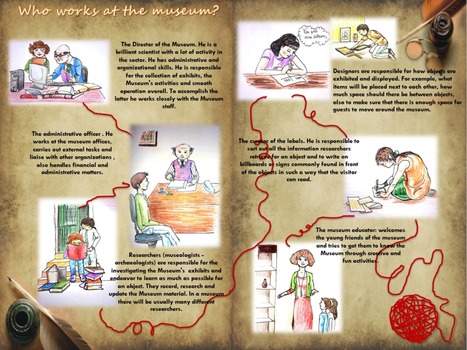Currently, dramatic changes take place in terms of rapidly emerging modes of communication, technologies, increased cultural diversity, evolving workplaces cultures, new challenges for equitable education and the varying and changing identities of students everywhere. Bearing this in mind, this article draws on a design-based research study to argue of the need for museums to respond to global trends and fulfill their social and educational imperatives by investigating the potential of a particular pedagogical framework that is grounded in culturally inclusive pedagogical practices and characteristics of ubiquitous learning.
Via Andreas Christodoulou, THE OFFICIAL ANDREASCY



 Your new post is loading...
Your new post is loading...










In this article, a design-based research approach is presented, which utilizes multiliteracies pedagogy to support ubiquitous learning during the design of a student-generated virtual museum. The findings from implementing the museum-school synergy, indicate that there is potential for beneficial ubiquitous learning experiences for students when theory-based practice is undertaken.